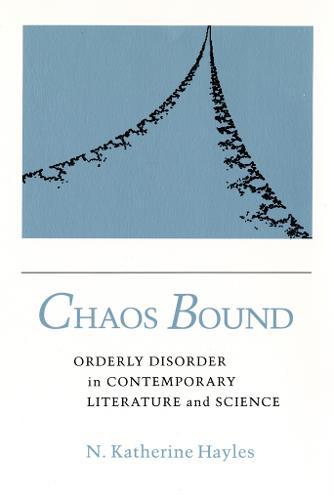Overview
Hayles’s point is that the almost simultaneous appearance of interest in complex systems across many disciplinesâ•physics, mathematics, biology, information theory, literature, literary theoryâ•signals a profound paradigm and epistemological shift. She calls the new paradigm ‘orderly disorder.’ This is a timely, informative, and enormously thought-provoking book. — Nancy Craig Simmons â• American Literature N. Katherine Hayles here investigates parallels between contemporary literature and critical theory and the science of chaos. She finds in both scientific and literary discourse new interpretations of chaos, which is seen no longer as disorder but as a locus of maximum information and complexity. She examines structures and themes of disorder in The Education of Henry Adams, Doris Lessing’s Golden Notebook, and works by Stanislaw Lem. Hayles shows how the writings of poststructuralist theorists including Barthes, Lyotard, Derrida, Serres, and de Man incorporate central features of chaos theory.
Full Product Details
Author: N. Katherine Hayles
Publisher: Cornell University Press
Imprint: Cornell University Press
Dimensions:
Width: 15.20cm
, Height: 2.80cm
, Length: 22.90cm
Weight: 0.907kg
ISBN: 9780801422621
ISBN 10: 0801422620
Pages: 277
Publication Date: 14 March 1990
Audience:
College/higher education
,
General/trade
,
Undergraduate
,
General
Format: Hardback
Publisher's Status: Active
Availability: Manufactured on demand

We will order this item for you from a manufactured on demand supplier.
Reviews
Hayles's point is that the almost simultaneous appearance of interest in complex systems across many disciplines--physics, mathematics, biology, information theory, literature, literary theory--signals a profound paradigm and epistemological shift. She calls the new paradigm 'orderly disorder.' This is a timely, informative, and enormously thought-provoking book. --Nancy Craig Simmons American Literature
Hayles’s point is that the almost simultaneous appearance of interest in complex systems across many disciplines—physics, mathematics, biology, information theory, literature, literary theory—signals a profound paradigm and epistemological shift. She calls the new paradigm ‘orderly disorder.’ This is a timely, informative, and enormously thought-provoking book. -- Nancy Craig Simmons * American Literature *
Hayles's point is that the almost simultaneous appearance of interest in complex systems across many disciplines-physics, mathematics, biology, information theory, literature, literary theory-signals a profound paradigm and epistemological shift. She calls the new paradigm `orderly disorder.' This is a timely, informative, and enormously thought-provoking book. -- Nancy Craig Simmons * American Literature *
Author Information
N. Katherine Hayles is James B. Duke Professor of Literature at Duke University. She is the author of many books, including How We Think: Digital Media and Contemporary Technogenesis, Electronic Literature: New Horizons for the Literary, and My Mother Was a Computer: Digital Subjects and Literary Texts.



